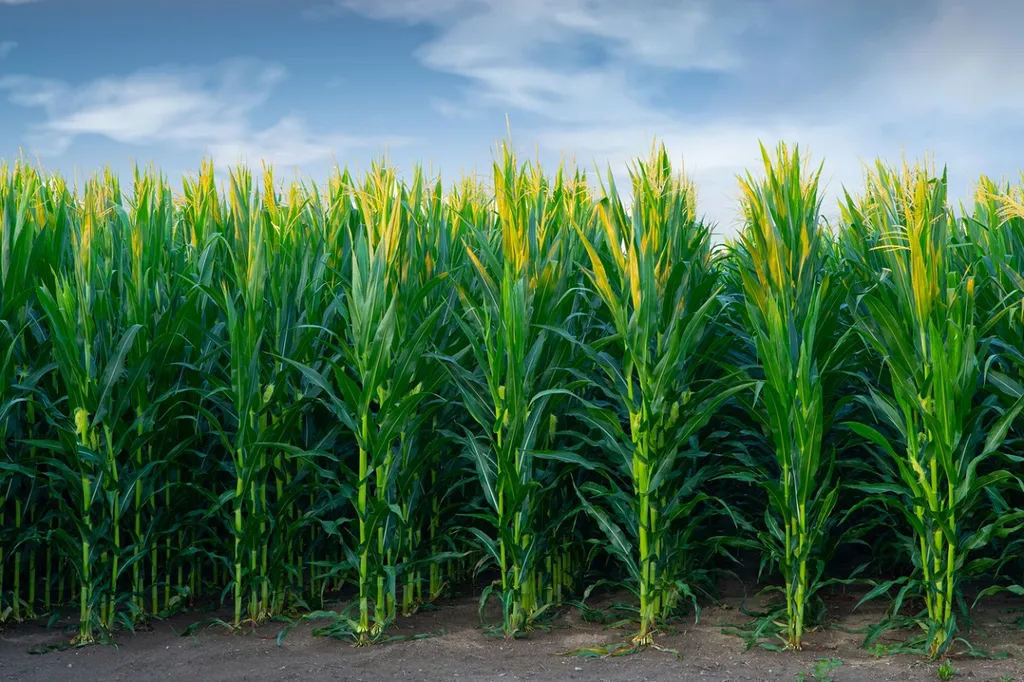In the heart of China’s agricultural innovation, a groundbreaking study has emerged, promising to reshape the future of maize cultivation and, by extension, the broader agricultural sector. The research, led by Wenlan Li of the Shandong Key Laboratory of Maize Biological Breeding, focuses on the insect resistance efficacy of transgenic maize LD05, a variety developed by the Shandong Academy of Agricultural Sciences. This study, published in the journal ‘Plants’ (which translates to ‘Plants’ in English), offers a beacon of hope for farmers grappling with pest-related crop losses.
Transgenic maize LD05 is not just another variety; it’s a testament to China’s advancements in agricultural biotechnology. Engineered to resist major lepidopteran pests, this maize variety has shown remarkable promise in both laboratory and field tests. “Transgenic maize LD05 exhibited high resistance to key pests such as Ostrinia furnacalis, Mythimna separata, Helicoverpa armigera, and Spodoptera frugiperda,” Li explained. These pests are notorious for devastating maize crops, making LD05 a potential game-changer for farmers.
The study conducted rigorous laboratory bioassays and field tests across five major maize ecological zones in China. The results were consistent and compelling: LD05 demonstrated high resistance to lepidopteran pests in diverse ecological settings. This consistency is crucial for the commercial viability of LD05, as it ensures reliable performance across different regions.
The implications for the agricultural sector are profound. Insect-resistant maize can significantly reduce the need for chemical pesticides, leading to lower production costs and a more sustainable farming practice. “This research provides a robust foundation for the industrialization of transgenic maize LD05,” Li noted. The potential economic benefits are substantial, with increased yields and improved crop quality translating into higher profits for farmers and a more secure food supply for consumers.
Beyond the immediate benefits, this research could pave the way for further advancements in agricultural biotechnology. The success of LD05 highlights the potential of genetic engineering to address pressing agricultural challenges. As the world grapples with climate change and increasing food demand, such innovations become ever more critical.
The study’s findings, published in ‘Plants’, offer a glimpse into a future where transgenic crops play a pivotal role in ensuring food security and sustainability. For the agricultural sector, this research is not just about a new maize variety; it’s about a paradigm shift in how we approach crop protection and productivity. As Wenlan Li and her team continue to explore the potential of LD05, the agricultural world watches with keen interest, ready to embrace the next wave of biotechnological innovation.

